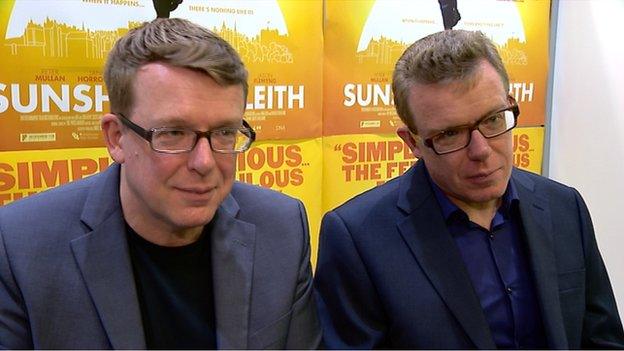This is the story of 30 years of The Proclaimers
- Published

Craig and Charlie are celebrating 30 years since their first album was released
Edinburgh twins Craig and Charlie Reid turned the pop world upside down with the release of The Proclaimers' first album - This is the Story - in 1987.
At a time when image was king, they burst onto the scene in glasses and scruffy jackets, belting out acoustic tunes in a broad Scottish accent.
A BBC Scotland documentary is looking back on their remarkable 30-year career. `
This is the story of an enduring Scottish music phenomenon:

Unlikely influences
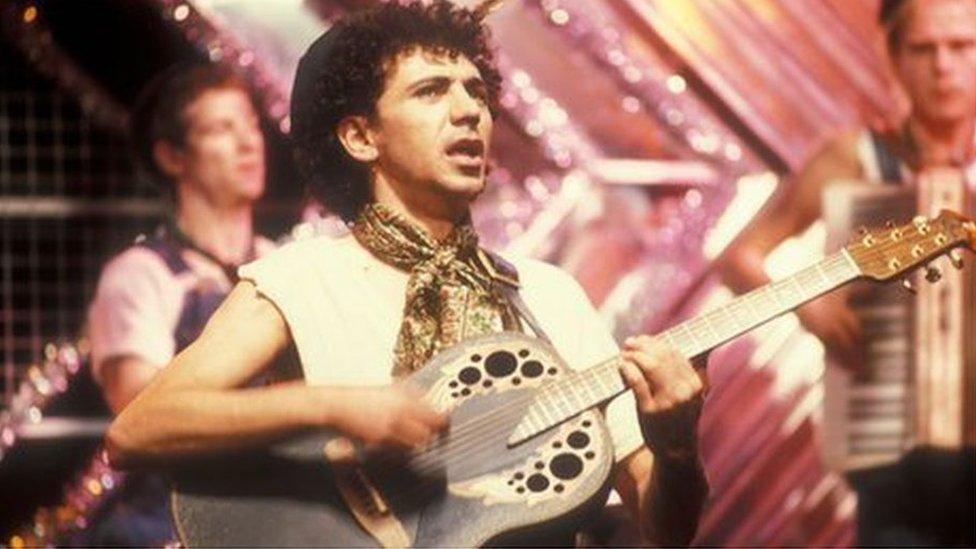
Proclaimer Craig Reid says the twins saw Dexy's Midnight Runners in 1980, when they were 18.
He says: "They came on stage and it was not something we were expecting. It was like being hit by a truck. It was breathtaking how good they were and how unusual they were."
The band's charismatic frontman Kevin Rowland became a good friend of the twins.
He says: "They were very political. They were very vocal. You couldn't win an argument with them, because there were two of them."

Touring with The Housemartins
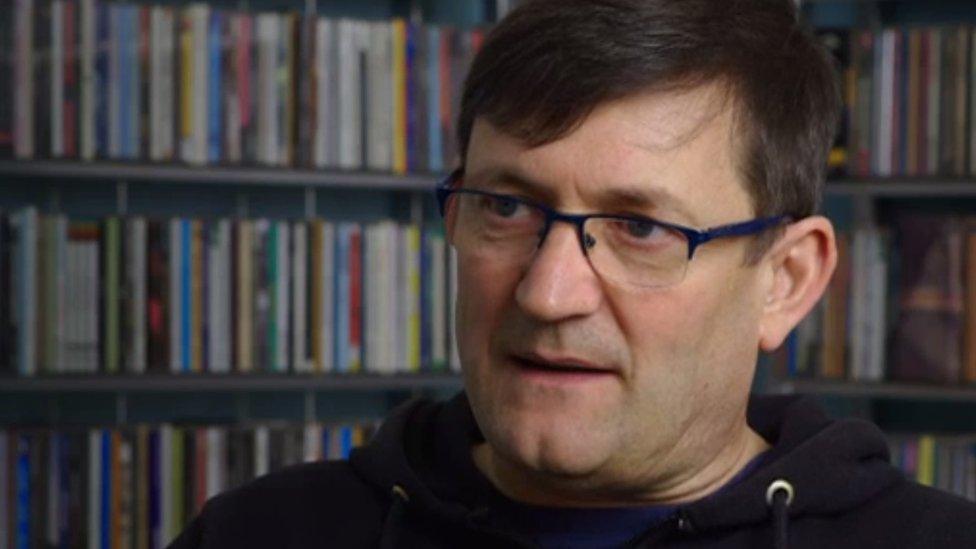
Paul Heaton says The Proclaimers were brilliant live
Kevin Rowland helped The Proclaimers make a demo which found its way to The Housemartins, another popular 80s band famous for being outside the pop orthodoxy.
The Housemartins invited The Proclaimers to tour with them in 1986.
Charlie Reid says: "The first gig was in the Hummingbird in Birmingham.
"It was probably the most scared we have ever been in our lives.
"We had never played to more than 50 people before. That was a big venue. There were probably a couple of thousand people there."
Housemartins singer Paul Heaton, who later formed the Beautiful South, says: "They were brilliant live and the next step was to make record that would convince the public."
Heaton put them in touch with record producer John Williams.

That appearance on the Tube
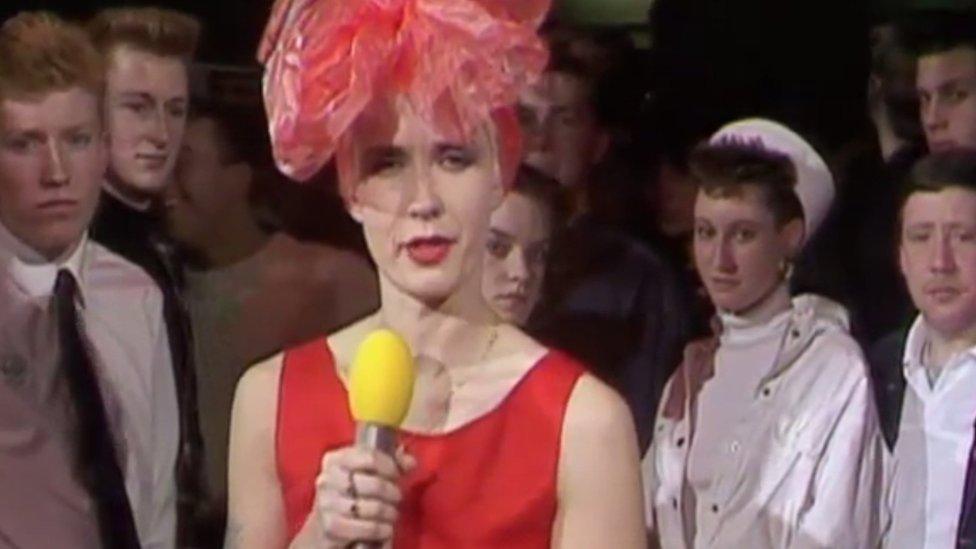
Paula Yates introduced The Proclaimers on Channel Four's The Tube
An appearance on Channel Four's hit TV music show The Tube was their breakthrough.
Presenter Paula Yates introduced the boys by saying: "Now it's time for something totally weird and unusual."
Craig and Charlie say she was not wrong.
According to Charlie: "We were always going to be fish out of water in everything we did."
He says: "The Tube was a massive show at the time.
"We went to the football the next day and we were standing on the terracing at Easter Road and people were coming up as we were buying a pie and a coffee and saying ' saw you last night pal'."

Singing with a Scottish accent
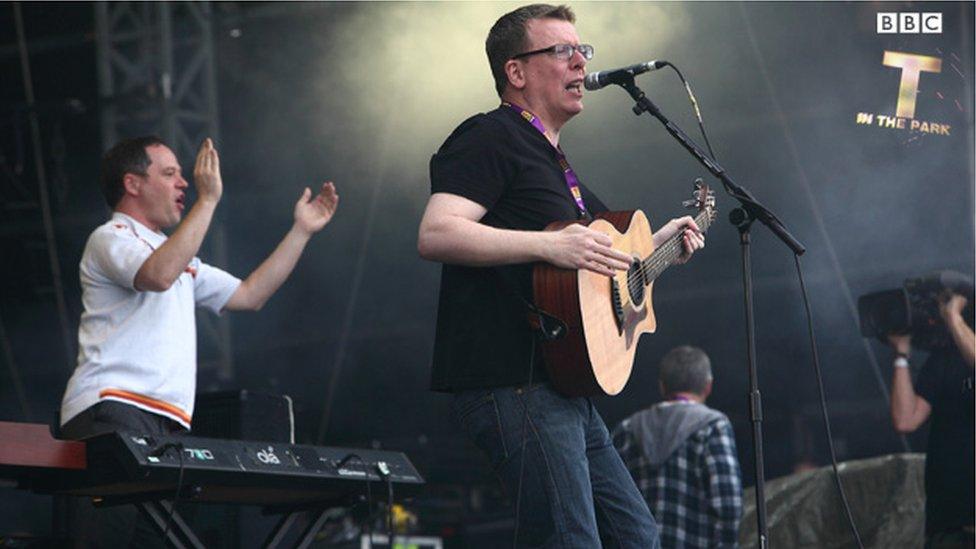
In 1987, all the big Scottish bands - Simple Minds, Big Country, Hipsway - were adopting a mid-Atlantic singing style that was definitely not their real accent.
Craig says The Proclaimers had encountered resistance to them singing in their own voices, especially by record companies in London.
He says: "I could not see the point of writing songs about stuff that we knew and had observed and then singing it in a mid-Atlantic accent."
Their first single was Throw the R Away, a song about having to change your accent to achieve success.
It contains the lyric: "I'm just going to have to learn to hesitate/To make sure my words/On your Saxon ears don't grate."
Craig says: "It didn't get much play."
But Charlie says they were not deterred.
"It was a determination to do it our own way and accept the consequences," he says.

Gerry Rafferty remixed Letter From America
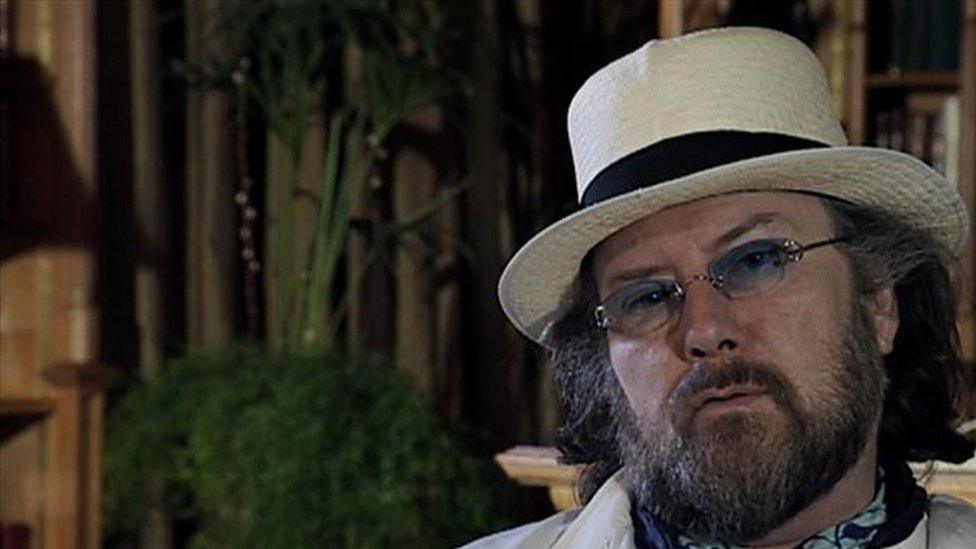
Scottish musician Gerry Rafferty remixed Letter From America
The first album - This is the Story - was recorded in London. Producer John Williams says it was kept intimate.
"Charlie and Craig recorded most of their takes in the control room," he says.
But they knew that in order to get radio play for Letter From America it had to have a band behind it.
They chose legendary Scottish musician Gerry Rafferty, famous for Baker Street and Stealers Wheel's Stuck in the Middle with You, to remix it.
It was a big hit and introduced the world to Bathgate, Methil, Irvine and Linwood - all name-checked in the song as places devastated by the Tory government's industrial policy, which the twins compared to the infamous Highland Clearances.
Scottish author Christopher Brookmyre tells the BBC documentary: "Having two guys with acoustic guitars singing a song about the Highland Clearances was not something that was going to shock anybody because that's a familiar subject for folk music.
"Suddenly making it about steel plant closures, making it 'Methil no more', changed everything.
"There is an edge to it. It's immediately relevant and you understand what the song is all about at that point."

Nicola Sturgeon's teenage anthem
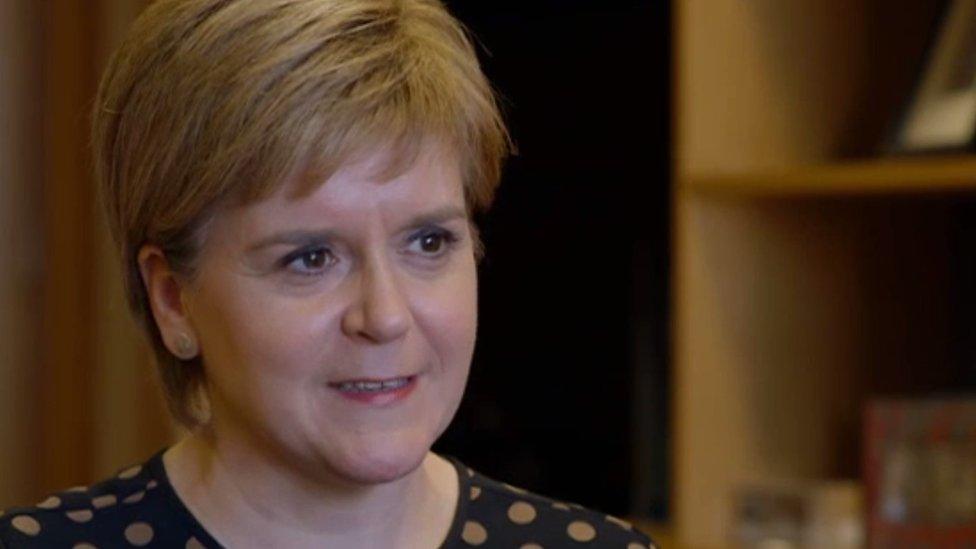
Nicola Sturgeon says Letter From America was very important to her
Scotland's First Minister Nicola Sturgeon, who chose Letter From America in her Desert Island Discs, was about 17 when the song was released.
She says: "It came out at a time when I was getting really involved in politics so it wasn't just that my home town of Irvine was mentioned in it, which was quite a big thing, but it was also that it spoke about something about my country that was also motivating me to get involved in politics.
"That song for me is the anthem of my teenage years."
Craig says the song was written in 1984: "It was basically rage at what was going on.
"Both of us were disgusted by the callous way that unemployment was used to break organised labour, to break the spirit of people."

I'm Gonna Be is their biggest hit by 500 miles
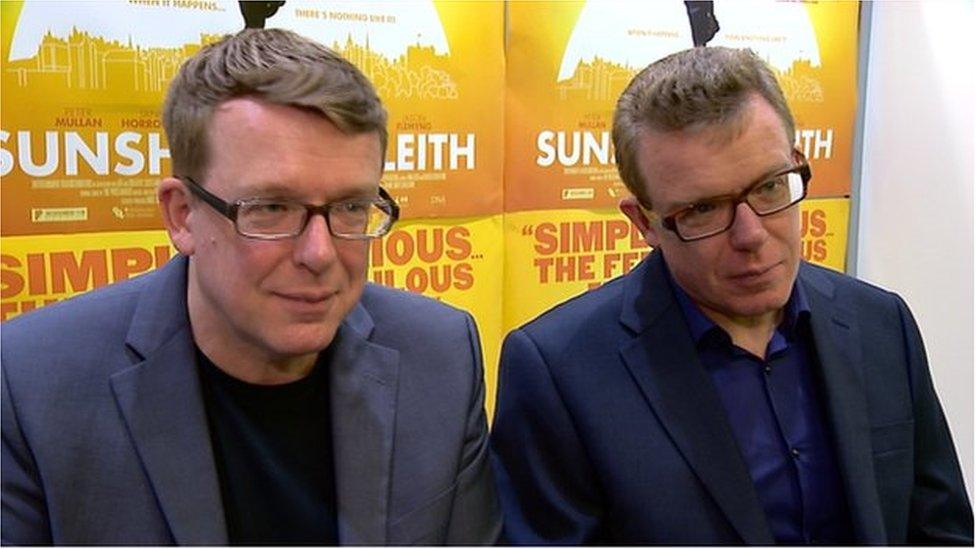
Charlie and Craig Reid at the premiere of the film Sunshine on Leith
Their second album Sunshine on Leith was released in 1988, just a year after the first.
It featured their biggest hit I'm Gonna Be (500 miles).
It was an international hit at the time but its success has continued for almost 30 years, providing them with their only No 1 hit when it was re-recorded for Comic Relief with comedian Peter Kay in 2007.
Charlie says: "500 miles is the reason we are able to keep making records. In terms of what it has brought in over the years it pays for new records, it pays for tours, it underpins everything we do."
They have had numerous other hits but they are not on the same scale, he says.
"I don't know what it is. It is indestructible that record."
"We wouldn't get out alive if we played a gig without it."
Craig says he wrote the song in 45 minutes after a gig in Aberdeen.
"One of the quickest songs I've ever written," he says.
"It was just like it was writing itself."

Banned in the US
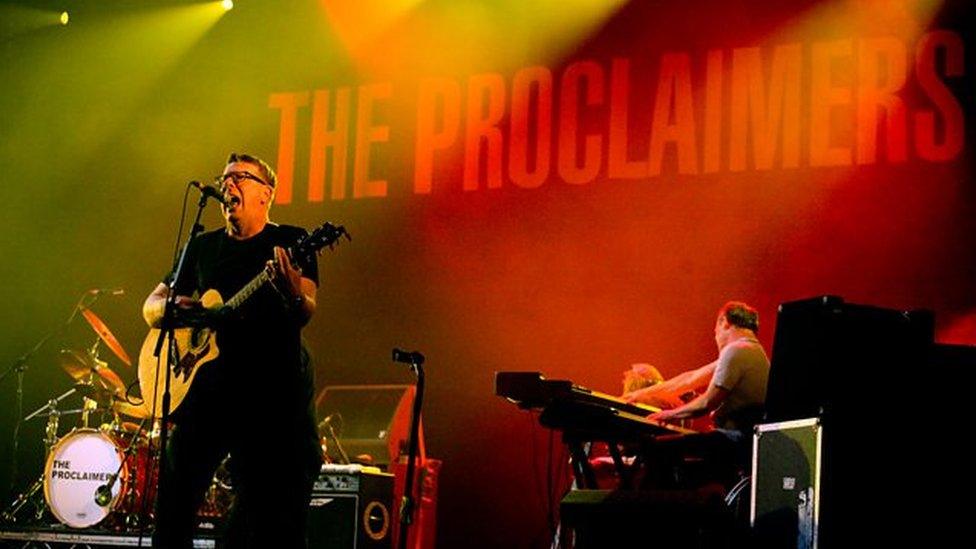
500 miles was The Proclaimers only hit in the US and has appeared in numerous movies including Benny and Joon and Pitch Perfect but some US radio stations took against it.
The lyric of the song contains the Scottish word "haver".
They didn't know what it meant but they assumed it must be subversive.
It actually means to talk rubbish.

Scottish independence
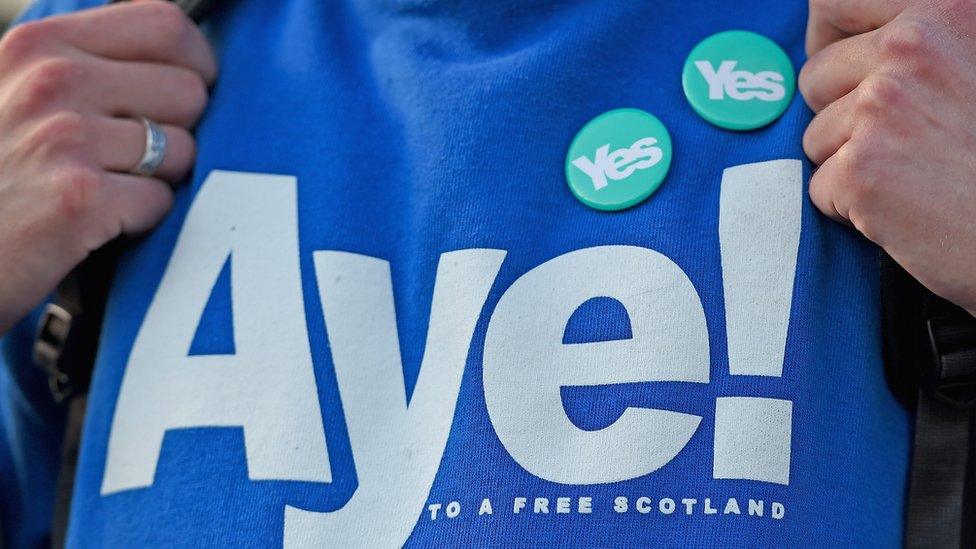
"I can't understand why you let someone else rule your land", goes the lyric of Cap in Hand.
The Proclaimers were never equivocal about their support for Scottish independence.
Craig says: "We are absolutely total believers that Scotland should be an independent country.
"I find it difficult when I meet people who have never given it a thought. I can't understand them."
SNP leader Nicola Sturgeon says: "Their songs over the past 30 years have in many respects been the soundtrack to Scotland's political journey and I think that has made the politics much more accessible at times to younger generations and brought politics alive.
"Really in very simple terms, in beautifully lyrical terms, telling Scotland's story.

The best football anthem?
Hibs fans sing anthem Sunshine on Leith after derby win over Hearts
The song Sunshine on Leith was released as a single in 1988 but failed to make the top 40.
The song is a melancholic six-minute epic which the brothers refused to edit and it didn't make it on to radio playlists.
Craig says:" Sunshine on Leith is one of those songs that has got bigger down the years.
"When you play live shows that is probably the one that connects you to the audience, even more than 500 miles."
Stephen Greenhorn, the playwright who created the musical Sunshine on Leith, says: "The writing on it is so pared down it feels like a really intimate song about a specific feeling between two people and yet it's the best football song you'll ever hear.
"10,000 people on the terraces can sing it and everybody is going to be in tears."
Hibernian FC, the club Craig and Charlie have passionately supported for years, have adopted it as their song and the fans belt it out whenever the occasion allows.
Charlie says: "That's when you know you have got something.
"Your own people sing your own song. Nobody is forcing them to do it. They do it because they feel it. It's very moving and it links you more to the club."

Destroying Edwyn Collins' kit
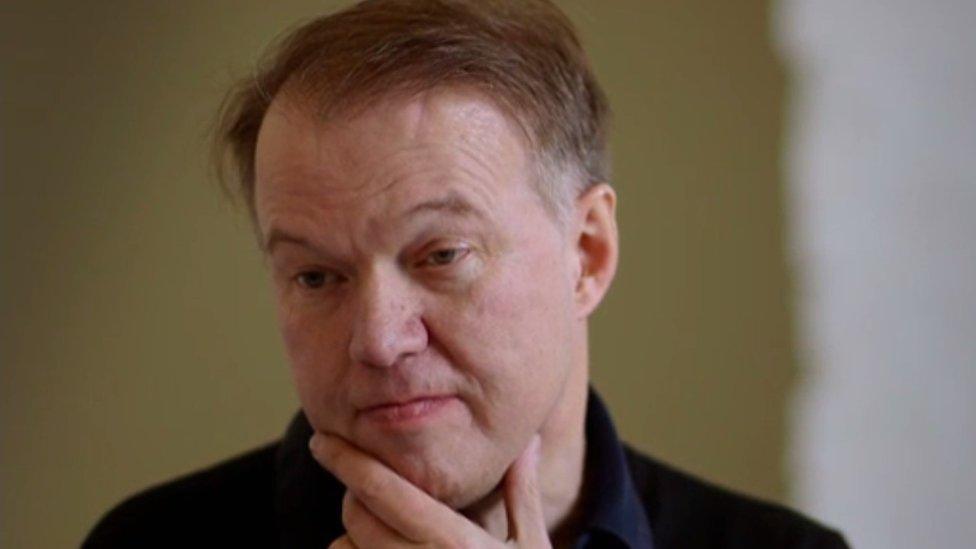
Edwyn Collins produced the 2003 album Born Innocent
The success of the album Sunshine on Leith was eventually followed-up with Hit the Highway in 1994, which included Let's Get Married.
The band then went quiet for seven years before returning with Persevere and then Born Innocent, which was produced by Scottish singer-songwriter Edwyn Collins
Journalist Craig Mclean says it was "two great Scottish institutions coming together".
Edwyn says they immediately had a "bond".
According to Charlie "it was probably the most enjoyable record that we have made over the years".
Edwyn Collins had a recording studio in London "stuffed full of vintage kit", according to Craig McLean.
Collins' partner Grace Maxwell says the "sheer power" of the sound coming from the boys "blew the capsule in the microphone".
"It has always been an ambition of mine," says Craig.
"When you hear Little Richard records the vocals are so high they are distorting the microphones.
"Half of Edwyn's gear was from the 1920s or 30s, I think. It was a lot of old gear so if we broke his kit we'll accept that responsibility."

David Tennant is a huge fan

Craig (left) and Charlie (right) with actor David Tennant, a big fan, who presents a documentary about their career
Doctor Who actor David Tennant, who presents the BBC Scotland programme, chose The Proclaimers song Over and Done With as one of his Desert Island Discs.
He says he has bought all their albums and seen them live countless times.
Tennant even had "Life With You" played as he walked down the aisle at his wedding.

No plans to stop
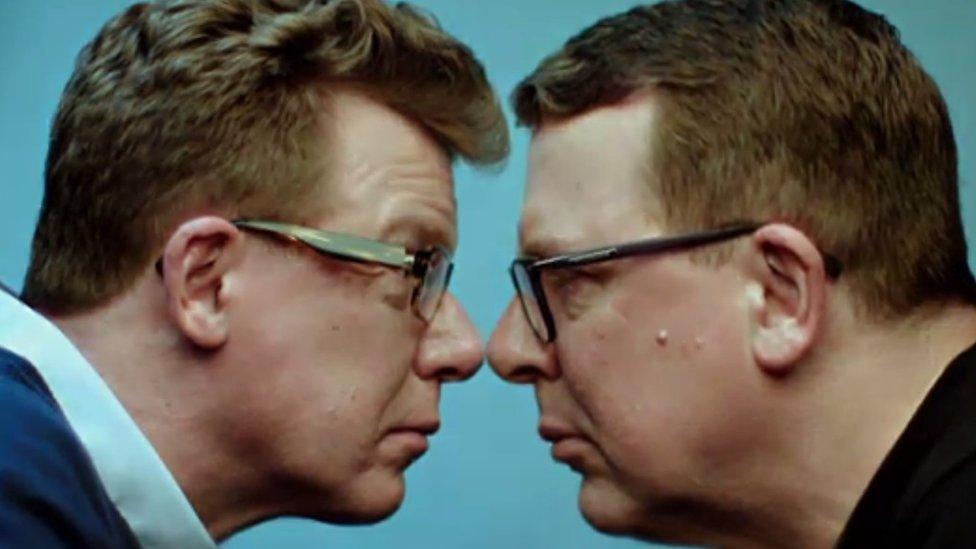
In recent years, there has been new material and a successful stage musical and film based on their back catalogue - Sunshine on Leith.
But touring is what The Proclaimers are about and they are as popular as ever.
At 55 years old, and after more than 30 years, they are no stopping just yet.
Craig says: We enjoy it as much, if not more, than we did."
- Published2 October 2013
